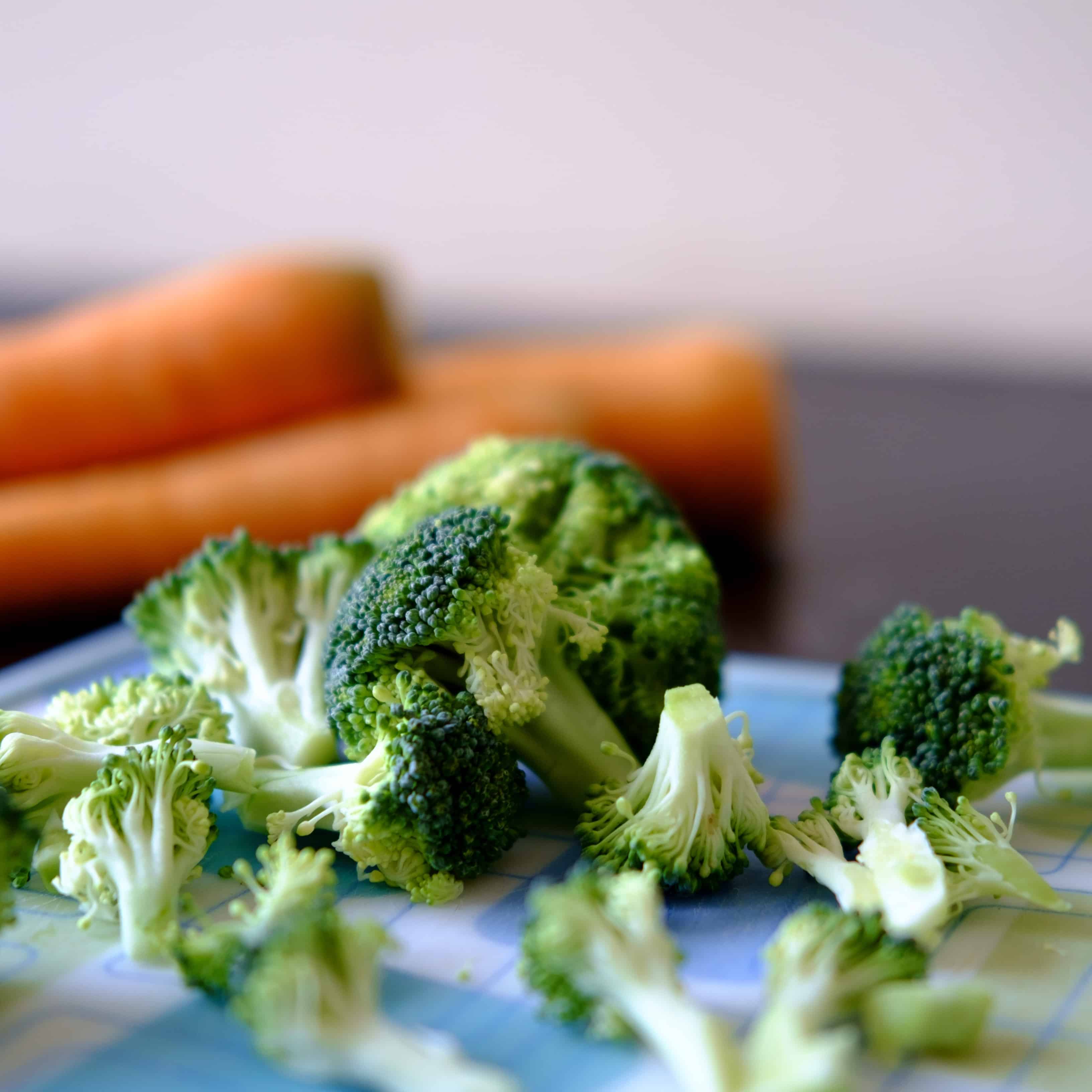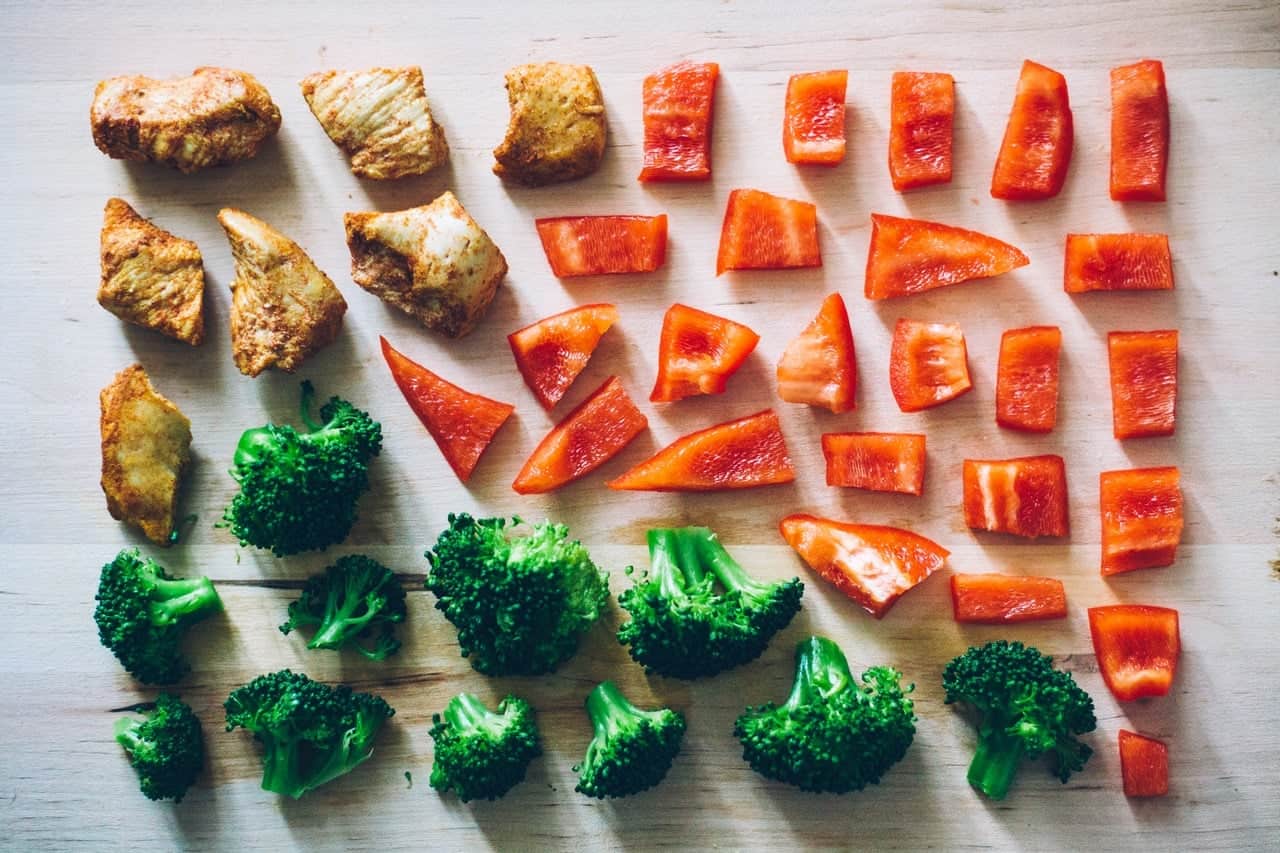“The first wealth is health”—Ralph Waldo Emerson
When you’re pulling your face in the mirror to look at new wrinkles, or despairing about how thin and breakable your hair is, it’s time to do something your parents told you eons ago; eat your broccoli!
Why Eat More Broccoli?
As scientists understand more and more about the role of food in holistic health, they continue to sing the praises of this dark green vegetable. A small bowl of these nutrient-packed vegetables at lunch can give you a huge portion of your daily nutrient needs, and also help with issues like inflammation or a surplus of mucus during a cold.
Researchers have found that the antioxidant enzymes found after chewing the vegetable create stores of vitamin C, vitamin A, and vitamin E, among many other nutrients.
This new interest in the cruciferous vegetable has been spurred on by holistic health movements and the desire by many to get back to natural ways of taking care of skin and hair. What most people don’t realize is that what you eat goes on to create the structures in your body.
Holistic nutritionist Lindsay Boyers says, “Thousands of years ago, Hippocrates (who is coined the Father of Medicine) said that “all disease begins in the gut,” and I have to agree. Your gut is its own complex ecosystem. It’s home to 100 trillion microorganisms, including about 400 different species of bacteria.”
Because what “goes into your gut” is so important for the health of your skin and hair, it’s important to understand the broccoli health benefits you can reap just by adding a small portion to your diet.
Types of Broccoli
Just like you can choose between cherry, grape, and heirloom tomatoes at your farmer’s market, there are so many different types of broccoli to pick from. All the different varieties offer a slightly different taste or feel, so there is no shortage of healthy options if you’re trying to gain some of the many broccoli health benefits there are.
Varieties
- Calabrese— Calabrese is an Italian variety that grows through the winter and is made sweeter by the cold. It’s sweeter than most types of the vegetable and more tender.
- Broccolini— Broccolini looks and tastes very similar the traditional food you know and love, but has much longer stalks and smaller heads. It tastes slightly bitter.
- Gai-Lan—This is also called Chinese Broccoli, and is bitter and slightly pungent. It goes very well in Asian dishes with spicy flavors and lends itself well to being stir-fried.
- Broccoli Rabe— While it may look like the leaves of the plant, rabe, or rob in some localities, stands all on its own. The stems, leaves and other outcroppings are all edible and have a bitter, nutty taste that’s reminiscent of turnips.
- Broccoflower— If you find the green, bitter vegetable to be too strong, this plant that’s crossed with a cauliflower is right up your alley. Broccoflower is sweet and mild like its cauliflower ancestor, but has a subtle kick from its other namesake.
Broccoli Health Benefits
What makes this leafy green such a nutritional powerhouse? Dr. Rangan Chatterjee says that eating the cruciferous vegetable and others from its family aids in the destruction of cancerous cells and offers a whole host of other benefits.
High Protein
While spinach is usually touted as the best way to introduce more plant-based protein into your diet, broccoli is an often overlooked source as well. A one cup serving of the cooked or steamed vegetable offers almost three grams of protein, which is a big percent of your daily needs of the macronutrient.
Researchers connect protein intake with the quality of your hair and skin because it’s the main building block. Eating more of this dinner staple can cut down on hyperpigmentation and promote healthy hair growth.
Vitamin C
If you find yourself thinking of oranges when it comes to vitamin C, it may be time to think again. This flowering vegetable is an ample source of the vitamin that stimulates your immune system and also promotes collagen production.
Collagen is one of the most important building blocks when it comes to beautiful, glowy skin, and getting enough vitamin C is the best ways to encourage collagen production. It also plays a big role in hair fullness and healthy growth. One of the most potent powers of vitamin C is its ability to combat free radicals. Lemon water is a great way to fight these off as well.
Vitamin K
This vitamin is often overlooked when it comes to tracking your nutrients, but one of the biggest broccoli health benefits is that the plant is chock full of them.
Vitamin K is best known for treating common skin ailments, like dark circles, spider veins, or even rosacea. Only one cup of this vegetables, either cooked or steamed, can give you up to 270% of your daily need for this vitamin.
Nicotinamide Mononucleotide (NMN)
This compound is a mouthful, but it’s a huge aid when it comes to the never-ending quest to slow down aging. Nicotinamide Mononucleotide has been found to be plentiful in broccoli.
When implemented in mice, the compound has been shown to make old cells behave as if they were brand new versions of themselves, and this can help your skin produce younger, more healthy cells that behave as young skin does. This can effectively fight off wrinkles, age spots, and types of skin cancers.
Vitamin A
This vitamin is stored in the body’s fatty tissues and aids in:
- Eye health
- Bone growth and health
- Reproductive health
- Production of healthy, young skin cells
- Fat elimination
Researchers have found that a healthy level of daily vitamin A can create new skin cells and also fight dry skin and hair. Vitamin A also helps in the production of something called sebum, which is like a natural conditioner for your scalp and can help you grow beautiful, strong, flowing locks.
Eating Your Way to Better Skin and Hair
When it comes to your skin and hair health, your food journey is a deeply personal one. Based on your concerns and typical eating habits, create a plan to “fill in the gaps” using broccoli or one of its family members, like:
- Bok Choy
- Cabbage
- Radishes
- Brussel Sprouts
- Cauliflower
There are so many reasons to eat more cruciferous vegetables, even besides the fact that they taste delicious and can be used in so many diverse recipes.
Broccoli health benefits include promoting bone growth and fostering beautiful glowy skin and thick, shiny hair.
If you’re not into the original green machine, be sure to give its relatives a chance. Rabe features a leafier, more bitter flavor profile that goes wonderfully with creamy or acidic tastes.
There are also different heirloom varieties of traditional florets that can range from more bitter to much milder. Try a recipe that features the cruciferous vegetable as complementary to a creamy flavor, like tofu or a rich cheddar cheese.
If you still have a picky eater in the family or hate the taste, cauliflower is a great substitute. It tastes nutty and rich when roasted and offers a whole host of similar benefits for your skin and health. Don’t be afraid to experiment with seemingly contrasting flavors or strange combinations. You’ll find yourself much better off in your holistic health journey after eating plenty of cruciferous vegetables, no matter what form they come in.
Even for picky eaters, with the immense benefits of eating these vegetables, it makes no sense to not at least give it a try. For optimal skin and hair health, it’s super important to get enough different macronutrients and have a balanced, healthy diet.
Final Thoughts on Broccoli Health Benefits
Taking care of your skin and hair can be a difficult, counterintuitive process because there’s not just one magic ingredient to eat your way to looking and feeling better.
There are, however, ways to go about eating in a targeted way based on what your skin or hair complaint is. For example, if you’re worried about spots and hyperpigmentation in your skin, vitamin C is the way to go.
If you’re concerned with the strength and thickness of your hair, it’s important to monitor your levels of protein and be sure that you’re getting enough of the macronutrient from varied sources.
When you focus your efforts on eating in a way that makes you feel good, you’ll soon begin to see that you look great, too. Holistic health comes from all-around nutrition and making sure that the body works in the way that it’s supposed to.
Remember, beauty comes from health, and health comes from the combination of foods that we put into our bodies. The old adage still rings true, “Beauty comes from within”!
https://www.youtube.com/watch?v=yG-G9_LOkLA


















